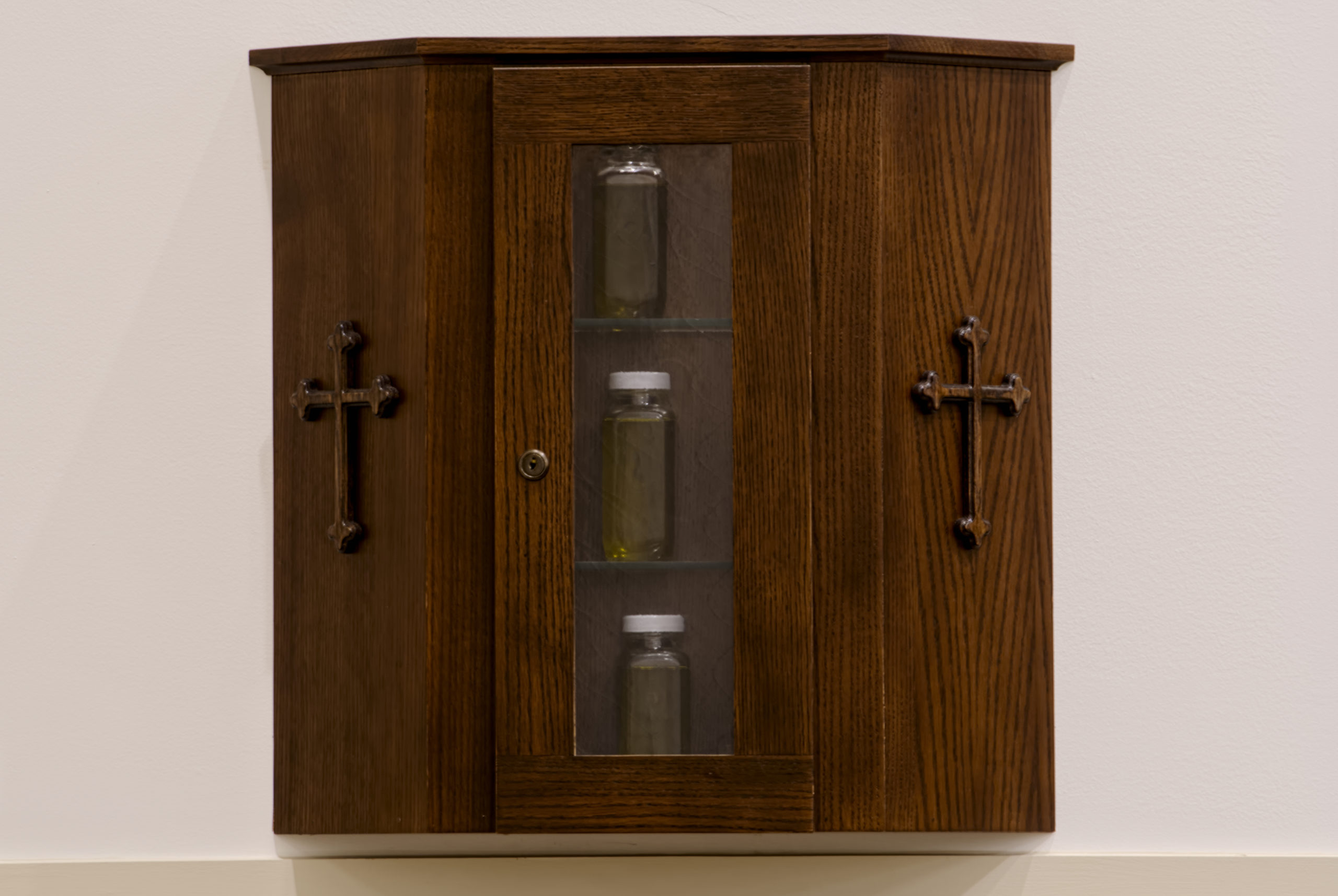Confirmation

The reception of the sacrament of Confirmation is necessary for the completion of baptismal grace. For “by the sacrament of Confirmation, [the baptized] are more perfectly bound to the Church and are enriched with a special strength of the Holy Spirit. Hence they are, as true witnesses of Christ, more strictly obliged to spread and defend the faith by word and deed.”
CCC 1285
Seeking to Receive the Sacrament of Confirmation?
All youth in Year 1 and Year 2 of Confirmation Preparation must register at a Sacrament Family Meeting. Family Meetings occur in April-August for the upcoming school year. Preparation is a two-year process – Year 1 is for youth in 9th grade, and Year 2 is for youth in 10th grade. If youth desire to wait to receive Confirmation, they are welcome to prepare whenever they are ready. Youth who wait until after they graduate high school (and are age 18+) to receive Confirmation will follow the process for Adult Confirmation (see below). Families do not need to be registered parishioners to prepare for Confirmation at St. Luke. Confirmation classes are separate from Youth Ministry.
The Age of Reason is 7-years-old; therefore, children ages 7 and older must freely desire to receive Sacraments in the Catholic Church.
For children and youth who are already baptized, the Catholic Church recognizes most Christian baptisms if they are Trinitarian (baptized in the name of the Father, Son, and Spirit). Children and youth who are baptized Christian will spend two years of formation for the RCIC – Rite of Christian Initiation for Children – receiving First Reconciliation in December of Year 2, then Confirmation and First Holy Communion during the Easter Vigil Mass of Year 2.
Children and youth who are unbaptized will spend two years of formation for the RCIC – Rite of Christian Initiation for Children – receiving Baptism, Confirmation, and First Holy Communion during the Easter Vigil Mass of Year 2, then First Reconciliation anytime afterwards.
While each family’s situation is unique, preparation for the RCIC is typically two years attending parish Faith Formation classes with some additional content and meetings focused on the Sacraments they are preparing to receive. Please contact our Director of Religious Education to discuss your child(ren)’s specific needs.
Any baptized Catholic adult (18+) who desires Confirmation will typically join the Rite of Christian Initiation of Adults (RCIA) process. The RCIA is a process of spiritual growth and learning about Catholicism. Through the RCIA, you are invited to enter into a relationship with God and the Church. Those who are already Catholic and desire completion of the Sacraments of Initiation will receive Confirmation. Contact our Director of Faith Formation or our RCIA Coordinator to join RCIA.
Adults who are baptized in a recognized Christian tradition or who have not been baptized who desire to become Catholic will join the Catholic Church through the Order of Christian Initiation for Adults. The RCIA is a process of spiritual growth and learning about Catholicism. Through the RCIA, you are invited to enter into a relationship with God and the Church. Those who go through the RCIA and wish to become Christians receive baptism, confirmation, and the Eucharist at the Easter Vigil. Those who are already Christian and desire full communion with the Catholic Church will receive confirmation and the Eucharist at the Easter Vigil. Contact our Director of Faith Formation or our RCIA Coordinator to join RCIA.
For Baptized Catholic High School Youth
For All Adults (18 years and older)
History & Theology
Confirmation is the sacrament that bestows upon us the fullness of the Holy Spirit that was given to us at Baptism. This is the same Spirit that filled the Apostles with the zeal and courage needed by all who are to be public witnesses to Christ. Confirmation celebrates God’s presence in our lives as the Holy Spirit continues to guide, strengthen, and empower us to live and witness the Good News of Jesus Christ. Christians, on the day of their Confirmation, become public witnesses to Christ and his saving works. Confirmation is not our first encounter with the Holy Spirit. The first encounter takes place at Baptism. The Trinity comes to dwell in the newly baptized as they are born again in water and the Spirit. Baptism brings people into a personal union with God. Thus introduced to the ways of God and the Spirit, the sacrament of Confirmation continues the process by having the Holy Spirit strengthened within us. Confirmation completes and perfects Baptism.
Sealed with the gifts of the Holy Spirit in Confirmation, Christians more perfectly become the image of their Lord and are filled with the Holy Spirit. They bear witness to Him before the world and eagerly work for the building up of the body of Christ. Confirmed Christians bear witness of Christ through both their actions and their words. They get involved in community service, volunteering both their time and talent. They respond more deeply to the gift of the Spirit as an outward sign of desiring to live more aware of Christ and more committed to His mission of serving others. Confirmation is not an end to church involvement and faith development. On the contrary, Confirmation is part of the bigger picture of what it means to be Christian.
Cleansed in the waters of Baptism and strengthened with the Holy Spirit at Confirmation, we come to the “source and summit” of our Christian faith: the Eucharist. It is fitting that the last sacrament of initiation is the Eucharist, as it is the only repeatable sacrament of initiation. Every week we come to the table of Christ to be nourished and strengthened by the Eucharist in order to better live out our Confirmed Baptismal responsibilities. It is Eucharist that is the “end” of our initiation, an initiation that reminds us to keep growing in our faith.